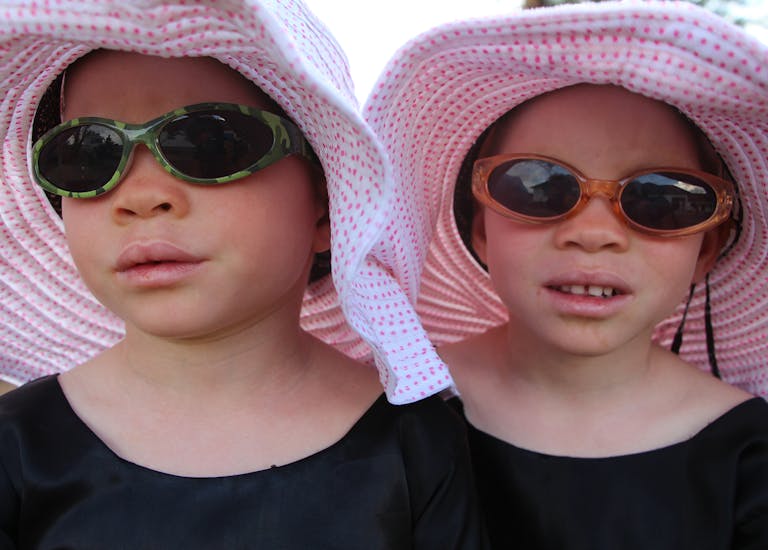Children with albinism stepping out of the shadows
Our partnerships with the Cheshire Homes Society of Zambia (CHSZ) and the Africa Albinism Network (AAN) and an additional contribution from the Nationale Postcode Loterij are helping us structurally improve the quality of life of children and adults with albinism in Zambia.
Need and Background
In Zambia, children and adults with albinism live in constant uncertainty because of misconceptions and myths about their condition. These misconceptions lead to horrific attacks, after which their body parts are sold to traditional ‘healers’ for large sums of money.
Children and adults with albinism are also discriminated against and excluded from basic services like healthcare, education and legal protection.
Project Goal
Improved access to healthcare, education and the legal system will improve the quality of life of children and adults with albinism in the provinces of Luapula, Northern, Eastern and Muchinga. To achieve this goal, we are implementing a National Action Plan (NAP) with the following five pillars:
- Strategic advocacy: for protection, health and education
- Capacity development: strengthening local albinism groups
- Awareness-raising: campaigns in hotspots, promoting positive recognition and access to care and the legal system
- Investigation and access to the legal system: prosecuting offenders and supporting victims
- Direct support: screening, skin cancer prevention and the provision of medical appliances.
Taken together, these five pillars will reduce stigmatisation and allow people with albinism to participate in society freely and without any fear. This ‘five-pillar approach’ has been applied successfully in Tanzania in the past.
The title of the current project (2024- 2027) is: ‘Out of the Shadows for Good: an end to the murder, mutilation, and exclusion of children and adults with albinism in Zambia’.
Project Results
The project aims to achieve the following tangible results:
- The development and implementation of a National Action Plan (NAP) for the rights of people with albinism, including a budget
- The equal participation of all children and adults with albinism in their communities
- Access to skin cancer screening and treatment, as well as high-quality sunscreen for all people with albinism in the four provinces
- Improved access to education for all school-aged children with albinism
- A significant increase in the reporting and follow-up of attacks on people with albinism
These results will enable us to work together to improve the quality of life and increase the life expectancy of people with albinism in Zambia.
